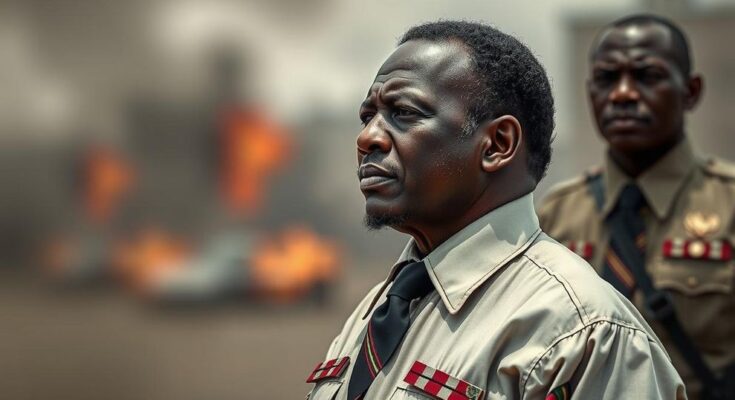Mozambique’s President-elect, Daniel Chapo, struggles to address a post-election crisis after the Constitutional Council confirmed his victory over opposition leader Venancio Mondlane. Protests erupted following allegations of election rigging, complicating Chapo’s plans for economic stability and potential reconciliation with Mondlane. Internal party challenges within Frelimo add to the complexity of the situation, presenting obstacles to governance.
Mozambique’s newly elected President Daniel Chapo is faced with significant challenges in alleviating the ongoing post-election crisis that has gripped the nation. Following the announcement by the Constitutional Council on December 23 that Chapo had triumphed over opposition figure Venancio Mondlane in the contested October 9 general elections, unrest surged anew as Mondlane’s followers reacted against what they deemed rigged elections. As a consequence, Chapo’s economic strategies and regional trade relations are at stake, necessitating potential concessions to the opposition, although such moves may incite divisions within the ruling Frelimo party.
The recent electoral process in Mozambique has been marred by allegations of fraud and political violence, leading to a polarized political climate. As a critical component of the wider Southern African political landscape, Mozambique’s internal stability is essential not only for its citizens but also for regional economic health. The tensions between the Frelimo party and opposition factions highlight deeper issues of governance, democratic legitimacy, and public confidence in electoral institutions. President Chapo’s upcoming initiatives for dialogue are pivotal in steering the nation towards reconciliation.
In summary, President Chapo’s ascent to power occurs amidst a backdrop of dissent and upheaval following a disputed electoral process. The need for compromise with the opposition is urgent to restore order and promote economic recovery. However, navigating internal party dynamics complicates Chapo’s path forward, as any perceived concession could exacerbate conflict within Frelimo. Ultimately, the future stability of Mozambique hinges on effective engagement between conflicting political entities.
Original Source: worldview.stratfor.com




